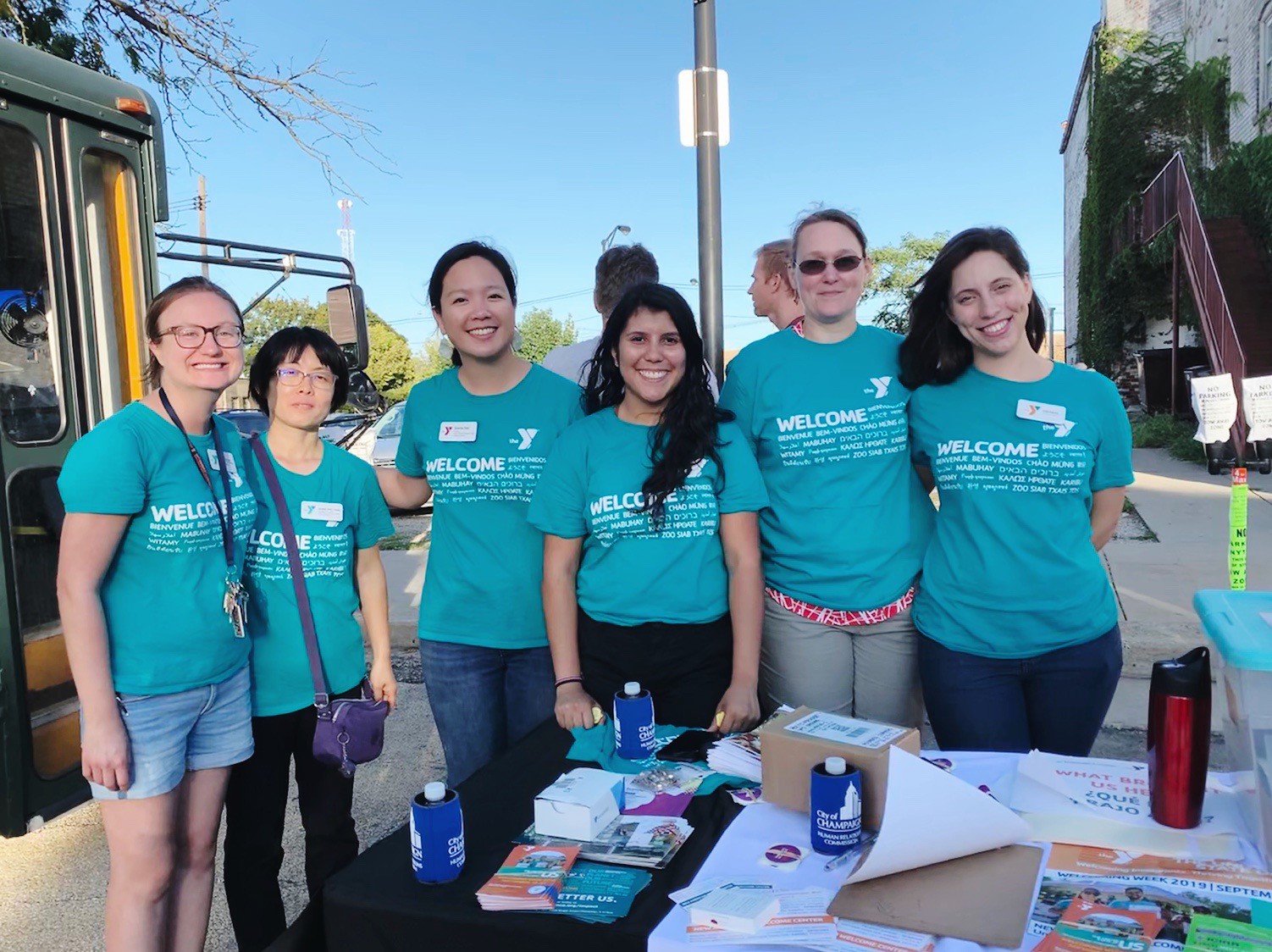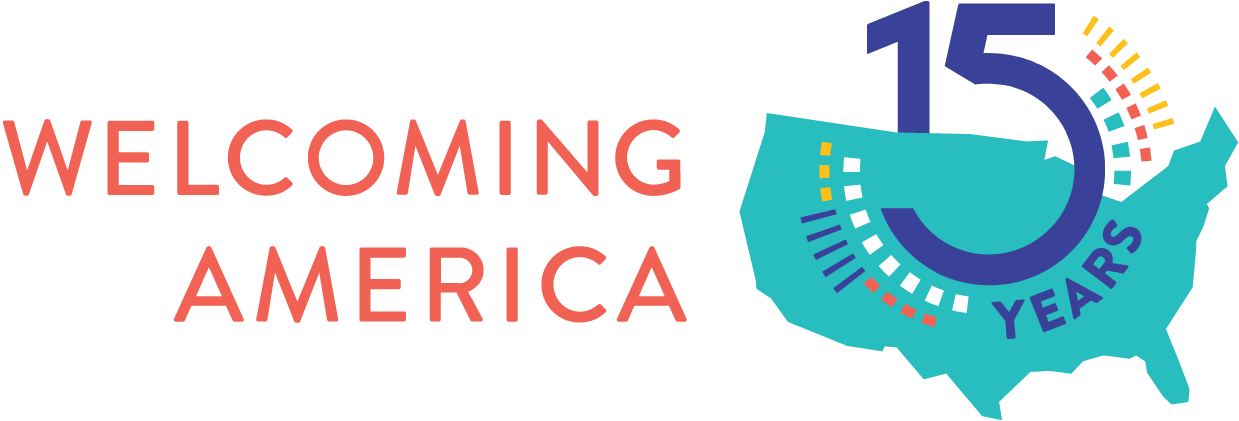
Member Spotlight: How a YMCA in Illinois is keeping community during COVID-19
During the COVID-19 pandemic, we are sharing the stories and experiences of the Welcoming Network in responding to the crisis in their communities as well as the challenges facing immigrant-serving nonprofit organizations. This week, we hear from Gloria Yen, Director of the New American Welcome Center at University YMCA in Champaign, IL.
COVID-19 has disrupted daily life all over the world. How has your organization or local government been responding to this crisis while continuing to serve your community?
When Illinois was placed under a stay-at-home order on March 21, we moved swiftly into rapid response by:
-
Transitioning to virtual resource navigation services. We wanted to preserve both the continuity of and ease of access to our immigrant helpline and immigration legal services to families whose worlds were turning upside down.
-
Expanding access to our Immigrant Relief Fund. Since March 19, we received 49 applications totaling nearly $43,000. The fund functions as a pulse on our most vulnerable community members. It captures and addresses emergency needs while sharpening our advocacy with stakeholders.
-
Centralizing reliable information by creating a COVID-19 Resource Guide for Immigrants in Champaign-Urbana. Hundreds of community members have accessed the guide, which streamlines critical information for frontline staff, allies, and advocates throughout our community.
-
Partnering with local leadership to fight for equitable access as we serve our community. This included:
-
Working with our state representative and local media to highlight the disparate impact of COVID-19 on immigrant communities, many of whom are serving on the frontlines;
-
Collaborating with the Economic Development Corporation and Small Business Development Center to identify and address the challenges facing immigrant business owners;
-
Partnering with the Public Health District to improve language access to COVID-19 messaging by translating and distributing information;
-
Coordinating with the Township and Regional Planning Commission to ensure undocumented residents have access to housing assistance;
-
Teaming up with United Way and Community Foundation to address the economic and food insecurity our neighbors are experiencing;
-
Brainstorming with city officials to develop inclusive messaging for immigrants during this time; and
-
Continuing to convene weekly stakeholder meetings to get out the count for Census 2020. Funding and representation is critical to community recovery post-pandemic.
-
What have been some of the challenges and opportunities that you’ve faced since the onset of COVID-19? How prepared were you to handle emergency response and crises, particularly in assessing the impact on both immigrants and the broader community?
One of our greatest challenges has been mobilizing rapid response for short-term needs while continuing to illuminate the flawed systems this pandemic has laid bare.
However, this is also one of our greatest opportunities. By chronicling the pandemic’s impact on immigrant communities, we are building a community memory and establishing a firm foundation for equitable access, economic opportunity, and meaningful belonging in the recovery efforts to come.
As part of an 18-member pilot cohort of New American Welcome Centers (NAWC) established by Y-USA, we have been creating a local infrastructure for welcoming over the past three years, one that has primed us for emergency response in this moment of crisis.
Since our launch, the New American Welcome Center at the University Y has been leading a community-wide effort to develop collaborations around strategic initiatives focusing on economic integration and employment; education and language; citizenship and civic engagement; health and well-being; and public safety.
In addition to these public and private partnerships, more than 300 residents benefit annually from NAWC programs while our community bridge-building efforts reach over 3,000 foreign and U.S.-born residents each year.
Social, or physical, distancing may have long-term effects in all communities. As a Welcoming America member, we know you’re striving to build a community of neighbors across all lines of difference. What are some of the ways you’re doing this? What are your plans to mitigate or overcome the effects of distancing once the crisis ends?
We have an incredible team of community navigators from the local Chinese, Congolese, and Latinx communities. They work each and every day to mitigate the effects of distancing by communicating critical information to immigrant communities. They also maintain social connections by hosting virtual programming for activities like Tai Chi. The pandemic has had different implications on the health and well-being of each community, but through it all, we’re strengthening intercommunity allyship and understanding between immigrant communities that often operate separately from each other.
We’ve also learned that physical distance does not have to mean a loss of social connection. We’ve experimented with different approaches to mitigate the digital divide and continue fostering connections across differences. We look forward to applying our learnings to Welcoming Week 2020 whether we are under quarantine or able to physically connect with our neighbors.
What are some key learning points your organization has from responding to COVID-19 so far? What can Welcoming America members all over the U.S. and world do to be more resilient and strengthen trust in communities during crises?
Invest in multi-sector partnerships. This is key to community resilience. In the past month, we’ve seen our community-building efforts bear fruit in crisis, as we’ve coordinated rapid response together with partners with whom we have built trust and credibility over the past few years.
Being kind is good for your health and your community. Science shows that acts of kindness can reduce toxic stress and give our immune systems a boost. Caring for our loved ones, our team members, and our neighbors is one way that we strengthen our communities during this time.
We even created a BINGO game (adapted from Church World Service) to engage our community in kindness and fun amidst this stressful time: 25 Ways to Care for Yourself, Others, and Immigrants during COVID-19 (PDF).

